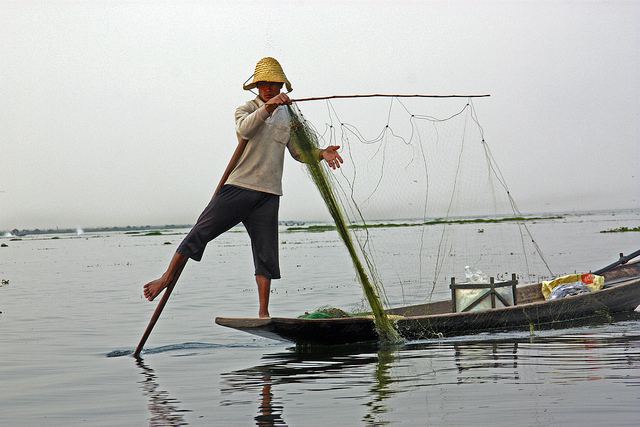While Myanmar’s economy has grown at the rapid clip of 8 percent annually in recent years thanks to its political opening, “poverty remains entrenched,” and linking the country’s markets to global value chains is a big challenge, Zaw Oo, Executive Director of the Centre for Economic and Social Development (CESD) said at a recent IFPRI event.
To address these challenges, Zaw Oo said, reforms must push economic integration at both the regional and global levels, and organizations promoting democracy should give a higher priority to Myanmar’s integration with the world economy.
Other panelists at the event, “Policy reform, agricultural trade, and economic growth in Myanmar,” examined the country’s many obstacles to accelerated agricultural development and economic growth.
“Undernourishment in Myanmar is linked to domestic price volatility,” said Maximo Torero, former Division Director of Markets, Trade, and Institutions at IFPRI. That, he said, is a legacy of Myanmar’s lack of economic diversity. As of 2010, Torero noted, 10 products accounted for 90 percent of Myanmar’s exports, and only five partners controlled 87 percent of the market—and the import situation is similar. Torero said that economic reforms should be sensitive to Myanmar’s nutrition problems, and that infrastructure must be seen as a value chain issue, because better infrastructure can help lower economic inequality, in part by providing improved access for social services.
Justin Finnegan, Deputy Assistant to the USAID Administrator, said that President Obama’s signing of the Global Food Security Act in July will be critical for Myanmar, particularly for its support of inclusive agricultural growth focused on smallholders, women, and small and medium enterprises. Policymakers should focus on continuing holistic reforms that enable growth in addition to smart investments in training and skills capacity, Finnegan said. As one of the largest global producers of pulses, Myanmar can become one of the largest and most successful agricultural production centers in Asia, he said, particularly if it builds processing plants for certain types of locally grown vegetables and fruit, and takes advantage of free trade with Europe.
IFPRI Director General Shenggen Fan concluded the discussion by noting that Myanmar has a tremendous opportunity for growth, in that more than 70 percent of the world’s middle class will be in Asia by 2030. However, in agriculture the country currently lags far behind its neighbors, he said: Myanmar invests $2 per person in agriculture and agricultural research, compared to Malaysia’s investment of $140 per person. Fan said that more research is critical to understanding challenges such as why a third of Burmese children suffer from stunting despite the country’s progress on reducing hunger. Fan also argued that providing good livelihoods for people will play a crucial role in eliminating Myanmar’s ethnic conflicts.
In general, Fan said, agriculture, food, and nutrition in Myanmar must be examined in a much broader framework than it is right now; in that regard, IFPRI is committed to using its policy expertise and experience from other countries to support Myanmar’s development.
Katarlah Taylor is an Information and Knowledge Management Facilitator at IFPRI.







